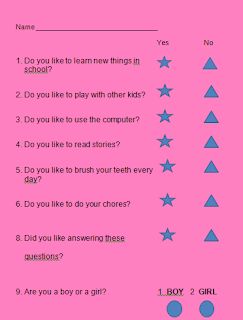1. What is the title of the project?
Using Readers Theater to Show Off Good Reading
2. What is the Question?
How can I effectively utilize readers theater to improve the fluency and reading comprehension skills of my students?
4. What strategy is being used to address?
surveys, observations, and student fluency assessments
5. What evidence is presented that the strategy will work?
The action research project focuses on fluency and The National Reading Panel in 2000 identified fluency as an important factor in successful reading habits, because of it contributes to students’ reading efficiency and comprehension.
6. How will data be collected to determine if the strategy will work?
The students progress will be monitored over a three month time period where the students will be frequently assessed on their progress by recording the students readers theater and assessing them weekly.
7. How was the data analyzed?
The data was broken into the four major groups - academically talented, general education, bilingual and special needs - represented in my classroom and learned that the academically talented group showed no gain because they were already fluent readers with great comprehension.
8. What were the results?
The action research project on Readers' Theater was successful and did show that the students improved in all areas including the students interest in reading.
9. How do the results inform teacher practice?
It is a great way to get students that are struggling in reading to become actively involved in reading. Students will develop a more positive attitude towards reading.

